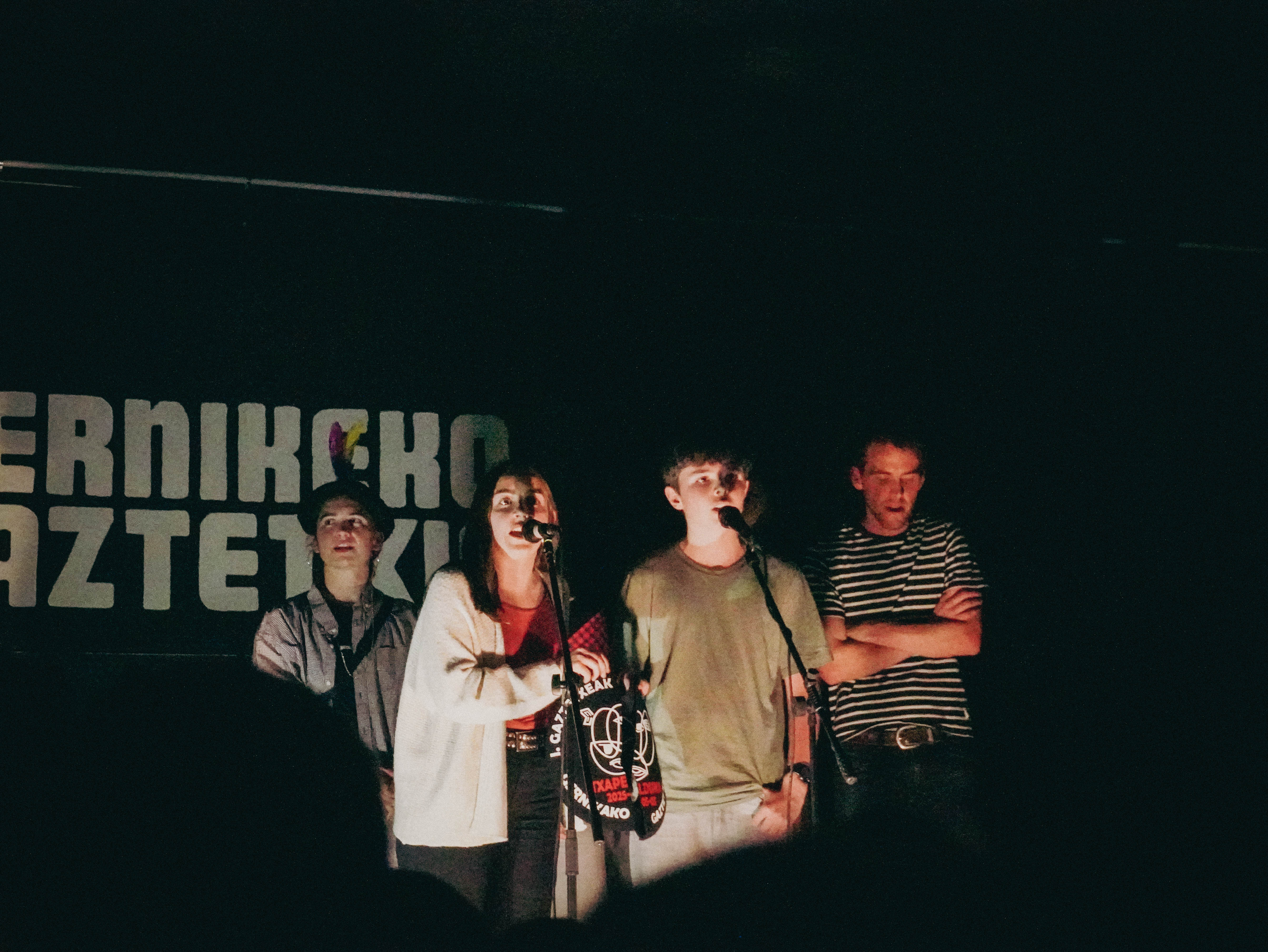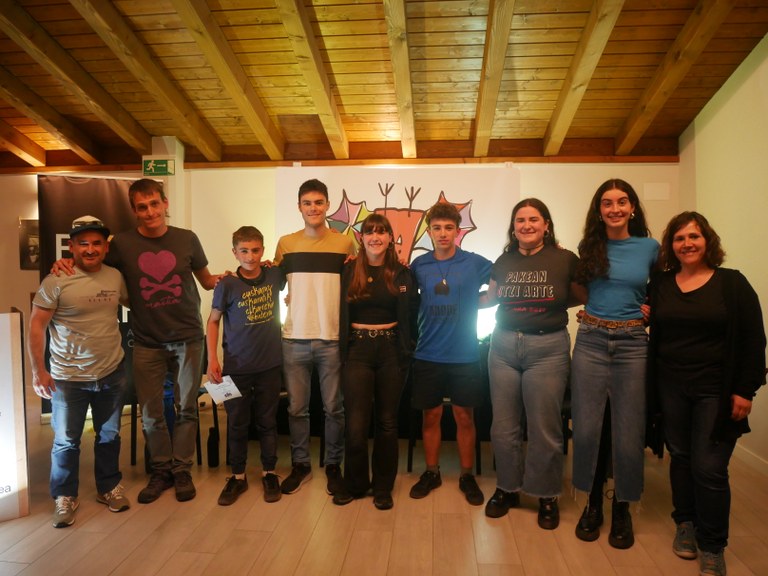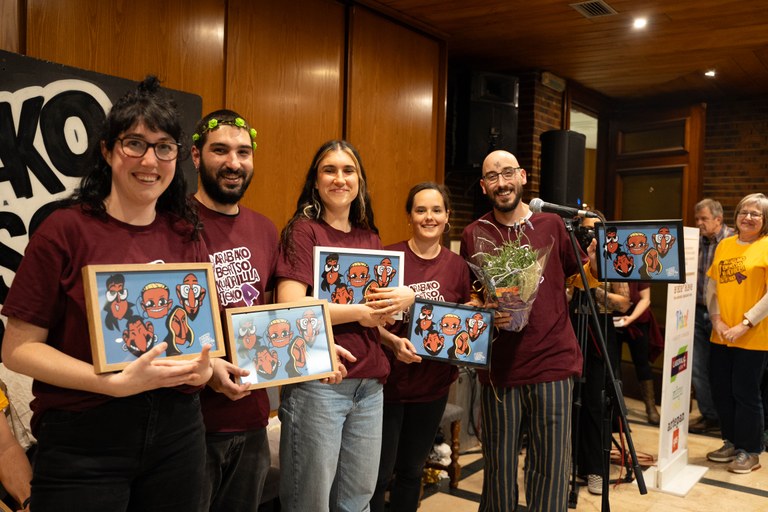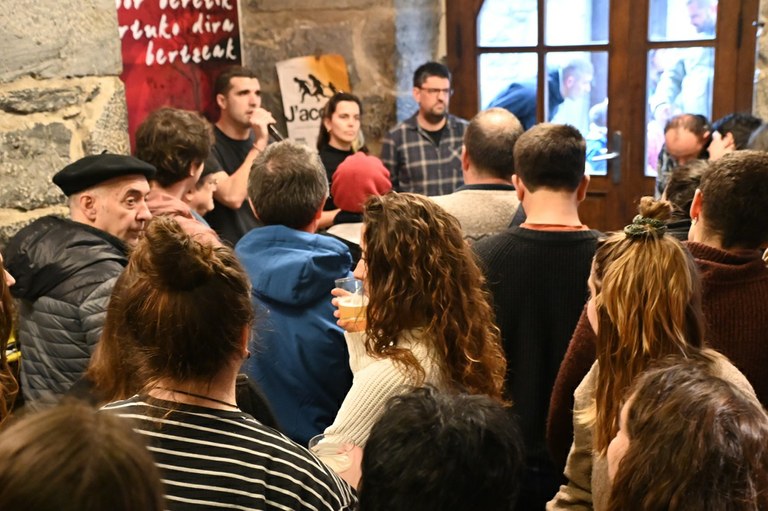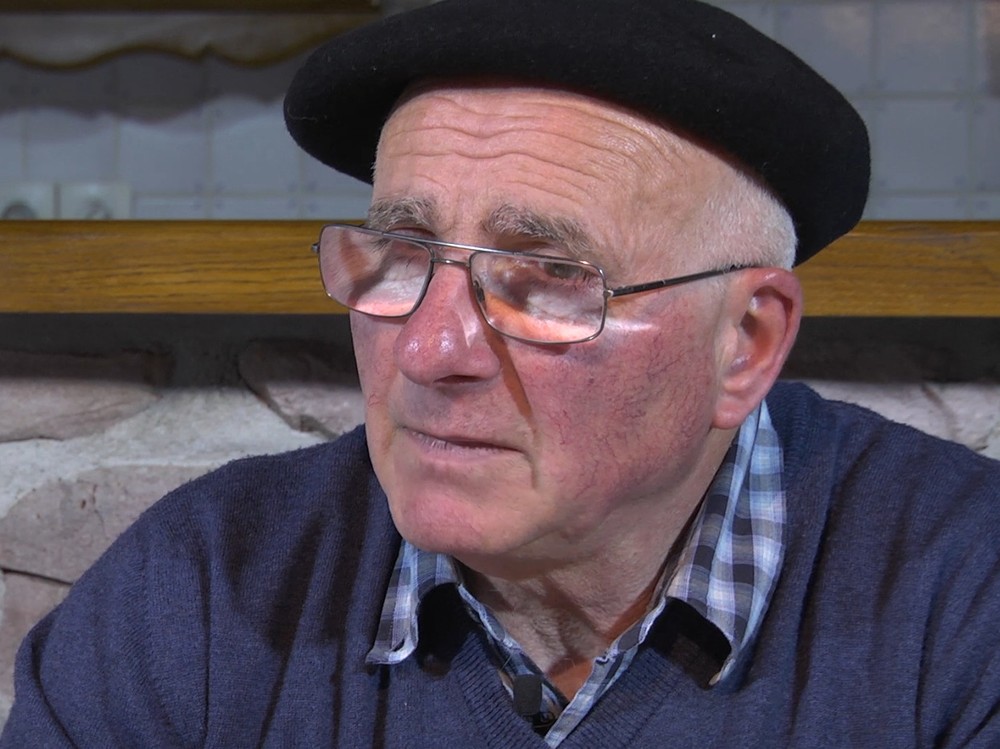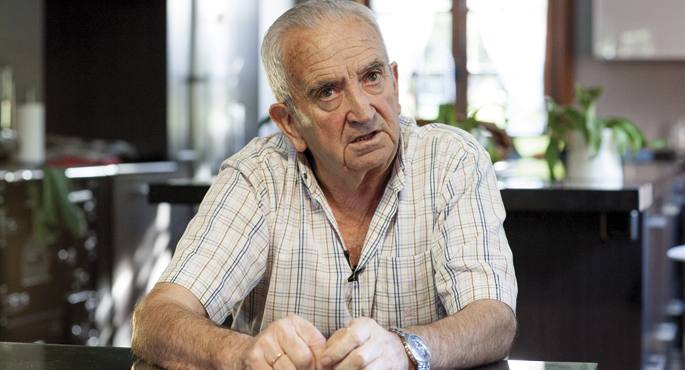
Why are many entrepreneurs in Euskal Herria and many baserritarras?
Because caserío is the most comprehensive university in the world. The child, from the moment it is born, maintains a direct relationship with nature and is unconsciously entered into the full functioning of nature. I learned without anyone explaining to me that the mother did the child. I saw cows, dogs, pigs, chickens laying eggs, and I did nothing but draw the conclusion of the obvious. Then, at that big kitchen table we met so many friends, each day the grandmother told us about the market's activities: how much she sold the milk, how much the eggs were, how much she had to pay for the oil… Everything. If a cow had to be bought at home, it would be decided at the table and in the sight of the children, and we naturally heard that the money we had left to buy the cow was obtained by selling calves. Since there are no teachers like the need, creating in the household means living immersed in the reality of the world. In case it was not enough, and as soon as we learned on foot, we were added responsibilities, when the parents were in the siesta we created our toys with the tools of home... When we started working at 14 we were already simple and semi-official! We were accustomed to cultivating thought, to using work tools, to internalizing the logic and the sense of the business of nature. Nowadays there are special universities for the creation of entrepreneurs, but in many of the previous homes it was studied for free, without any commitment.
What commitment did society then have to the word? What did the word mean to you?
Our game tool. The word was an opportunity to meet and enjoy together. What served then was to speak. Sometimes seriously, sometimes with humor... The word had more value than today. In this damn world that we've made in the name of progress, people are living increasingly lonely. People who go to the larger towns than Azpeitia and live in those high skyscrapers will be rich in money, but I am sorry. We entered the elevator back and preferred alone. Television is going on during meals. As many computers as people live at home. We make a very lonely, not very communicative life, and that, in my opinion, is a great hallmark of the person's identity. The person is an animal, and like many other animals, I would say it's an animal that moves in groups. We still see smiling grandparents 80 who live in a very healthy environment and 20 years of bitterness… Dialogue between friends, sorrows and joys, enjoyment and suffering together, that is for me the world of man.
If for you the word is not a wager...
Of course, it becomes a game tool. The verse is that too, after all. If I go to a town to sing bertsos, in vain the next one will be the best bertsolari, if I can sing better. I've always met an exceptional company among the bertsolaris, but I've never forgiven my biggest friend. I've never cast a bad verse for being OK. Play and wager at once. When I was 13-14 years old, I began to ask for Santa Águeda, and in the previous months, we carried out a preparation as serious as the one now done for the championship. We sang in our own way at all the gates of the nearby villages, and when the day came, we read. A little later, when we started attending the pilgrimage, we were doing mental gymnastics for a whole week in view of the function we were going to perform with a pseudo-bertsolari bertsolari as we were on the evening of the party. If we accompanied a girl we liked and we went out with the performance we liked, it was a round party afternoon. That was our bertsos school. There is no secret, anyone who wants to make progress in Bertsolarism has to be a drunk of the trade, a vice rather than a hobby. To those in the Eskola Bertso I say many times: “If you have come together once a week, playing with the bertsos, and you have taken a few drinks together, but if someone has the illusion of being bertsolari, he has a class hour of bertsos to teach the work he has done alone during the week and take strength for another week.” It goes on, it goes on and there's no more. Because the bertso isn't just curling and measuring, you have to look at the world face-to-face, pass through your sieve what's coming, and in a broad sense, for that you have to live.
For years you have lived from place to place, combining the work of entrepreneur with the work of walking in plaza. Have you committed any sin?
It depends on one's personality. If you're at peace with what you do where you are, you can give your opinion in all peace of mind about the role you're promised. I haven't had too many problems. Moreover, since the verse was a very young vice, it has given me a respite to go to Bertsolarism. In 1986, when we were a young company, they gave us a chaparron that forced us to interrupt the payments when we were in a Zumarraga play. The company was in my name, and, boom, it wasn't nice times. Surprisingly, in those very narrow moments, only when I went to the verses did I forget the burden of the company that took my dream away from me. It was refreshing to enter my world and forget the rest, and my world had to be a verse.
In your world, you've always tried to adapt to the bertsos of every moment.
Each bertsolari has its own mindset, and it works in the mirror that it likes. I've tried to be open to the world. A generation of bertsolaris, despite being made up of a large number of bertsolaris, was shut down with obsolete messages that dominated the Church and the atmosphere of then. So, no matter how good it may be, I've never been blinded by a single verse. I liked Lasarte’s fleetness and rhyme, the humor of Lazkao Txiki, the depth of Xalbador, the deception of Agirre, the garb of Joxe Lizaso… Why not try to work for each one as much as I can? I've tried, looking at the world face-to-face and passing the present through my filter. I have never believed that what was good before and what is bad today is bad, and I have only done one thing that I thought was nice or good.
Later, however, from your generation, those who have maintained their own Bertsolaris have been valued.
That's right. I've known more or less the Bertsolaris of these 100 years, and I haven't found two equal yet. Each bertsolari approved by the people has its sights, otherwise it would not be approved. So, everyone asks what they sell, and, whether they want it or not, bertsolari also works on that basis. Many of the things that Joxe Agirre said are worthless, neither for me nor for Andoni Egaña. Joxe Agirre has worked on his bertso, he's been the last of the classics before, and that's what people asked him, and he's given it to him. Everyone makes their efforts in their field because it's how it is, and what more beautiful that every bertsolari has his personality. That's the key, nobody wants plastic bertsolarism.
What has left you personally with the effort made in the Basque Association Herriko Bertsozale Elkartea?
Being part of the Marmitako where so many different opinions were cooked and so many discussions has helped me dress up. It has been very difficult years, but we have always been optimistic. Even after the toughest meeting, we took a drink, we said things in good mood and went home full of illusion. This satisfies me, I've always felt very comfortable. I may have been in the chair for too long, but I owe it all to Bertsolaris, and whoever owes everything cannot deny anything. When Iñaki Murua was willing to take office, I left him very comfortable, not because he was uncomfortable, but because he was convinced that the association needed younger and more current people than I was. If the association maintains the philosophy and the team environment that has existed so far, it has much to contribute. If there is someone who wants to help Bertsolarism, it will always have the doors open. If we have reached where we have arrived, it is thanks to the work of exchanging thousands of people, and even if there are more and more professionals, that will be the engine of the partnership.
Not only did he retire from the presidency of the association, but also from the company. How do you see the explosion of the housing bubble and the crisis that we are experiencing from the watchtower of retirement?
That's what's always happened. They were from villages around Azpeitia, or from marques, counties or dukes, and as in Azpeitia throughout the Spanish peninsula. Spain, and in turn Euskal Herria, has always been under the tutelage of some great. They've moved the money, turning the rulers into bred and rewarding the most honest raise. In the name of progress they started making money, and in that bubble they spent what they had and what they didn't have, making people believe that happiness was consumption. Our parents told him to save money, but now it's said to spend it before you have it. Who is it to give a credit to go on holiday? But that's how we've gone, convinced that we were all rich, and at the time that the machine has collapsed, comedies. The only thing that is clear is that the rich will be richer than before because we will rescue them with everyone’s money and they will all be dragged. Moreover, since until recently everything was based on the movement of money, the lords are starting to think “have we not used the workers too well?” and think about the idea of turning them into slaves like 80 years ago to be competent. They're going to make the little girl smaller, bend her to accept anything, but they're also dependent on a dead-end paradox. If the whole system is built around consumption, how will the one who is not given money to consume consume consume consume consume? That is why we are experiencing the worst reddish crisis I have ever known and which does not seem to be resolved.
Continuing with the retirement chain, this year you will say goodbye to the path of places.
On the one hand, it makes me sad. Over 50 years on, throughout the Basque Country, you have an atmosphere of friendship, a family, and cutting with it is also taking you out of the square. But, on the other hand, as I said to Joxe Agirre the other time, a bertsolari doesn't have to go and give mercy to a people. Bertsolari is on the street to sell humor and demonstrate the way of acting. Moreover, perhaps because I have not been content with meditating and laughing at them, I have had a terrible terror in the square. I sang thousands of verses in the plaza, but do you think I've never started to taste? Then yes, breaking the ice, connecting with the people and making me happy thousands of times, but as in that improvisation you don't know if it's going to be the best or the worst day of life, I've always taken with me this terrible horror. What do my nerves come to? I know that if I've done something decent, it's done and I've left it pending, I'm not going to do it anymore. Damn it! In due course, being able to retire has its grace.
1936ko urtarrilaren 12an Azpeitian jaio zen bertsolaria. 1982 eta 1989ko txapelketa nagusietako finalista, 50 urtetik gorako ibilbidearen ostean, abenduan esango dio agur plazaz plazako jardunari. 1987tik 2005era Euskal Herriko Bertsozale Elkarteko lehendakaria izan da, eta 2003an Aho-bizarrik gabe izeneko memoria liburua argitaratu zuen. Bertsolari lanak etxegintza enpresako zuzendaritzarekin uztartu ditu.
“Onerako eta txarrerako herri adar-jotzailea, burla egiten ona, izan da gurea. Harrotik ere dezente daukagu azpeitiarrok, eta azkoitiarrei iseka egiten gustura egoten gara, baina azkoitiarrik ez badago elkarri sartzen diogu ziria. Uste dut gimnasia horretan izugarri trebatzen dela pertsona, baina gaur egun zailagoa da hizketarako guneak topatzea. Tabernetan, esaterako, ez dago hitz egiterik, ezta entzuten ari zarena musika edo txakur borroka den antzematerik ere”.
“Ume koxkorrak ginela, guri eskolak ematen zizkiguten maristak, herriko bederatzi komentutan zeuden erlijioso mordoxka, dozena erdi bat guardia zibil eta herriko jueza izango ziren Azpeitian euskaraz ez zekiten bakarrak. Entzuten genuen Donostiara joandako hemengo jendea multa bat edo beste ordainduta zegoela euskaraz hitz egiteagatik, baina Azpeitian ezinezkoa zen horregatik zigortzea, %50ak baino gehiagok hitzik ez zekielako erdaraz, eta ondorioz, ezinezkoa zelako erdaraz hitz egitea”.
“Uztapideri entzunda nago berezia zela Azpeitiko plaza. San Tomas eguneko saioa hamabiak puntuan hasten zen, eta bertsolariak udaletxeko balkoira ateratzen zirenean hamar bat lagun baino ez ziren egongo. Laugarrenak agurra kantatzerako ordea, inguruko tabernetatik ateratako jendearekin plazak gainez egiten zuen, denak erne, ez bertsoak entzuten bakarrik, saioa jaten”
Maiatzaren 8an hasiko da Bizkaiko Bertsolari Txapelketako sailkapen fasea. Zortzi saio bikoitz jokatuko dira maiatzeko eguenetan. Sarrerak eskuragai daude bertsosarrerak.eus atarian.
Asteburu honetan hasiko da Gaztetxeak Bertsotan egitasmo berria, Itsasun, eta zazpi kanporaketa izango ditu Euskal Herriko ondorengo hauetan: Hernanin, Mutrikun, Altsasun, Bilboko 7katun eta Gasteizen. Iragartzeko dago oraindik finala. Sariketa berezia izango da: 24 gaztez... [+]
Vagina Shadow(iko)
Group: The Mud Flowers.
The actors: Araitz Katarain, Janire Arrizabalaga and Izaro Bilbao.
Directed by: by Iraitz Lizarraga.
When: February 2nd.
In which: In the Usurbil Fire Room.











